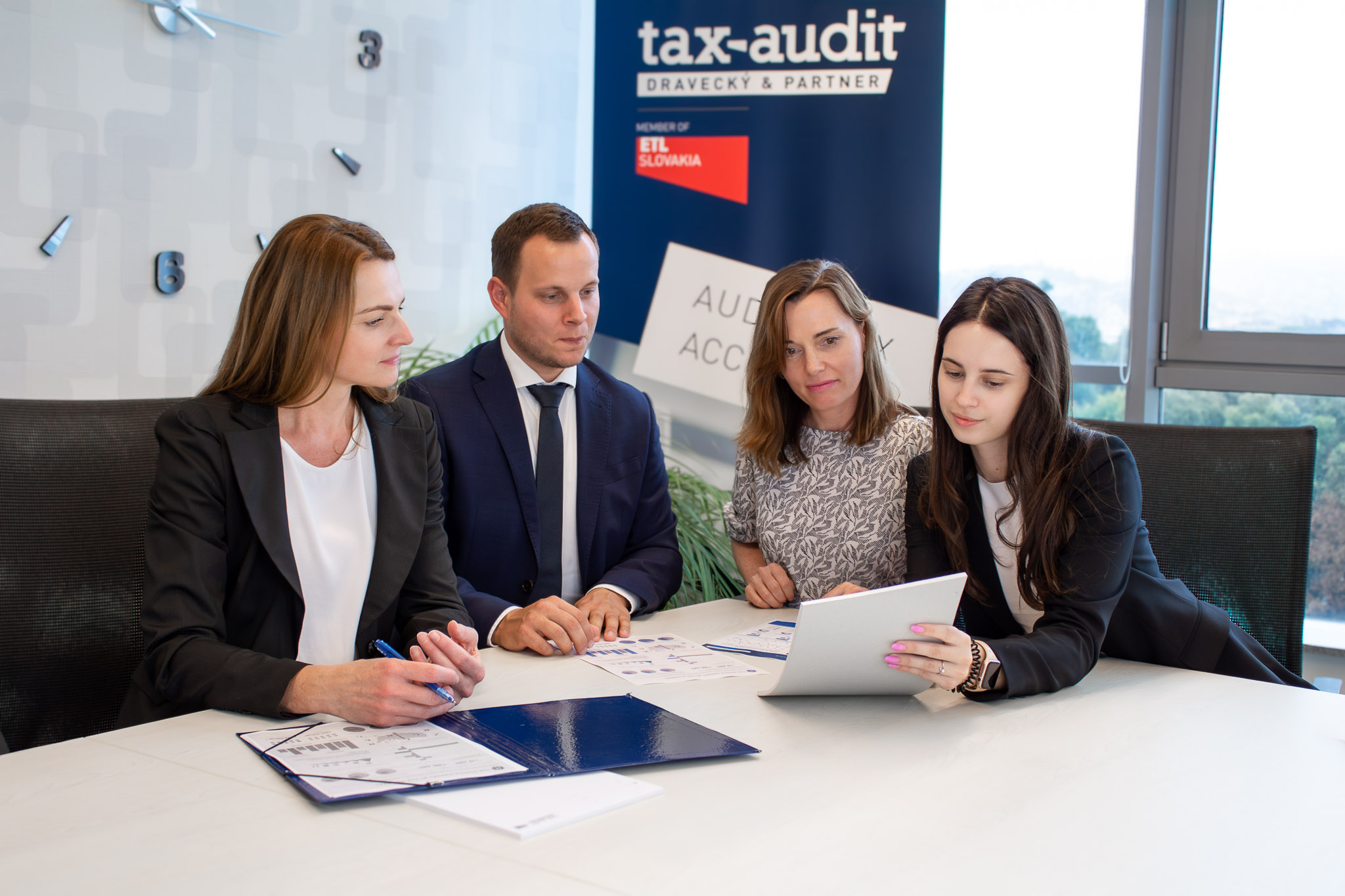When managing finances and running a business, it is essential to have professionals who can help navigate complex tax and accounting regulations. Two professions often confused are accountants and tax advisors. While they may perform some similar tasks, each has its specific focus and functions.
Accountant: A Fundamental Role in Business
An accountant is a professional who deals with recording and processing financial transactions. In Slovakia, this profession is not strictly regulated, as accounting is considered a free trade. This means that practically anyone who is at least 18 years old, not deprived of legal capacity, and holds a trade license can perform this activity.
The main tasks of an accountant include:
- Bookkeeping: Accountants process and record all financial transactions, including invoices, payroll, and bank statements.
- Preparing documents for tax returns: Accountants prepare the necessary documents but cannot process or file tax returns themselves.
Unlike tax advisors, accountants are not required to have liability insurance. However, it is recommended to have such insurance, so it is worthwhile to check whether an external accountant holds it when selecting one.
Tax Advisor: An Expert in Tax Matters
In Slovakia, awareness of the role and importance of tax advisors remains insufficient. Many entrepreneurs and individuals do not realize the value a tax law expert can bring to their business and personal finances. This lack of information can lead to poor decisions or reliance on non-experts.
Unlike accountants, tax advisors must meet strict conditions to practice their profession, ensuring they have the necessary knowledge and skills. The main tasks of a tax advisor include:
- Tax consulting: Professional advice on tax planning, determining the tax base, and fulfilling tax obligations.
- Preparation of tax returns: Completing and filing tax returns.
- Client representation: In case of issues with tax authorities, tax advisors can represent their clients and assist in resolving disputes.
To become a tax advisor, one must have a university education, practical experience, and pass a challenging professional exam. Tax advisors also adhere to strict ethical and professional standards, including maintaining confidentiality and being liable for errors caused by unprofessional advice.
Criminal Prosecution for Unauthorized Practice
One important aspect of the difference between accountants and tax advisors is the regulation and responsibility for providing professional services. If someone who is not a qualified tax advisor offers advice in the field of taxes, they may face criminal prosecution.
Such actions could be considered unauthorized business activity, which carries a penalty of imprisonment for up to 2 years under the basic rate. This strict punishment is intended to protect clients from unprofessional advice, which could lead to severe financial issues and legal consequences.
Conclusion
In summary, accountants and tax advisors fulfill different roles in the field of finance and business. Accountants focus on bookkeeping and processing financial transactions, while tax advisors provide professional consulting and representation in tax matters. It is important to consider the specific needs of your business when choosing a professional and select someone with the necessary qualifications and experience to help optimize your financial and tax obligations.
Be the first to know about the latest information from the world of taxation, accounting and auditing.













































